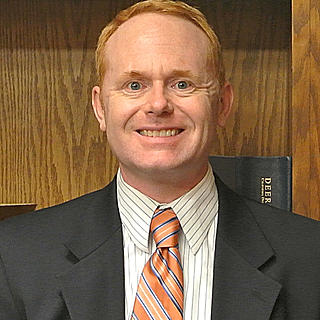The NEW Pre-Litigation Demand-- Have you issued your 999 Demand yet?
- Troy Hazelton
- Feb 28, 2023
- 3 min read

Pre-Litigation policy demands to insurance companies are a standard tool. We have all seen them, used, them, and dealt with them. The idea was simple: make an early policy limit demand, and if the carrier did not act “reasonably”, bad faith was in play. In pre-litigation, it was the wild west. Anything went. The demand could be sent on a Friday before a holiday weekend, to expire that Monday. It was unregulated and a strong tool and powerful litigation strategy.
In 2023, the California legislator issued California Code of Civil Procedure section 999—999.5 (formerly senate bill 1155) to govern pre-litigation demands made after January 1, 2023. First, some limitations. It only applies to automobile, motor vehicle, homeowners, or commercial premise liability insurance policies for property damage, personal and bodily injury, and wrongful death claims (Code Civ. Proc., § 999(b)(2).) Second, we can foresee a strong argument that the legislature has deemed this reasonable, so if a demand to a carrier outside of these arenas complies with CCP § 999 et. al., it would be hard to argue it was not “reasonable.”
PLAINTIFF REQUIREMENTS: The new 999 Demands require the following to potentially trigger “extracontractual damages"”
· In writing
· Labeled as a “TIME LIMITED DEMAND”
· Contain material terms, which include:
o Time period within which it must be accepted but not fewer than 30 days from transmission by electronically/certified mail
o Time period within which it must be accepted but not fewer than 33 days from transmission by US Mail. (This is interesting because under the code you usually get five days for mailing.)
· Clear and unequivocal offer (which likely will be a point of contention) within policy limits, including satisfaction of all liens
· Full release
· Date/location of loss
· Claim number (if known)
· Description of KNOWN injuries sustained by the claimant. (I could see this to be a main point of contention, because demand letters are either too general or contain very little about injuries, which could potentially nullify a demand letter’s effectiveness)
· Reasonable proof, which may include, if applicable, medical records or bills, sufficient to support the claim. (again, this sounds good in theory and most demand letters include the medical records and “proof” at the time but I can foresee carriers using this to keep pushing it out or claiming “reasonable proof” did not accompany the demand.) (Code Civ. Proc., § 999.1)
CARRIER’S REQUIREMENTS: The carrier can request further information and investigation within the 30 days. (Code of Civil Proc., § 999.3) Doing so does not constitute a rejection of the demand or a counter-offer.
I suspect carriers will send off a letter requesting more information upon receipt. They can request an extension for further time, but the code does not appear to require Plaintiffs to grant the extension. However, if extensions are not granted, the carrier can argue “reasonable Proof” was not provided or all the “Known Injuries” were not disclosed.
The carrier SHALL notify the claimant, in writing, of its decision and the basis for its decision. This is interesting because now the carrier cannot simply ignore a demand; it must respond and set forth the basis of its response. This requires the carrier to set forth its arguments against plaintiff’s position pre-litigation. If a carrier ignores the demand, its refusal to respond could be used in any lawsuit alleging extracontractual damages against the tortfeasor's liability insurer, and presumably, would be weighed against the carrier.
IF DEMAND LETTER NOT COMPLIANT: if the demand letter is not compliant with this code section, a time-limited demand that does not substantially comply with the terms of this chapter shall not be considered to be a reasonable offer to settle the claims against the tortfeasor for an amount within the insurance policy limits for purposes of any lawsuit alleging extracontractual damages against the tortfeasor's liability insurer. Presumably, post-litigation demand letters for policy limits not compliant would still apply.
WHAT NEXT?
I am a mediator and available for all your mediation needs. You can reach me to schedule a mediation at: THazelton@pgllp.com or feel free to call at: 559-431-1300.



